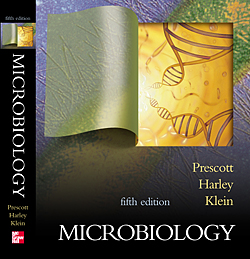

 Microbiology, 5/e Microbial Genomics True or False Quiz |
 2002 McGraw-Hill Higher Education
2002 McGraw-Hill Higher EducationAny use is subject to the Terms of Use and Privacy Policy.
McGraw-Hill Higher Education is one of the many fine businesses of The McGraw-Hill Companies.
 |  | ||
| Student Center | Instructor Center | Information Center | Home | |||
| |||
 2002 McGraw-Hill Higher Education 2002 McGraw-Hill Higher EducationAny use is subject to the Terms of Use and Privacy Policy. McGraw-Hill Higher Education is one of the many fine businesses of The McGraw-Hill Companies. | |||